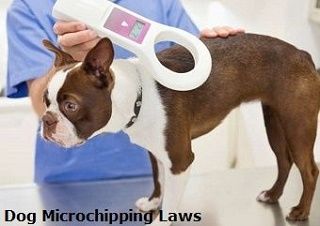Bringing in Pets and Animals
Cats, Dogs, Ferrets, and Horses
As a rule, animal quarantine is not required to bring in your dog, cat, or ferret into the United Kingdom. But, to do so, the animal must meet the rules of the UK Pet Travel Scheme (PETS).
Note: A similar passport scheme for horses exists for bringing them into the United Kingdom.
Other Animal Species
The rules are less restrictive for those who arrive from an EU country to the UK with other animals. In this case the restrictions do not apply to most family pets. These pet species include rabbits, birds, rodents, invertebrates, amphibians, and reptiles.
Note: The rules differ for pet rabbits and rodents from countries which are outside of the EU.
In this case the pet must spend at least 4 months in animal quarantine. You may also need to put your pet in rabies quarantine to get a rabies import licence.
The Centre for International Trade (Carlisle) has more information. They can provide further details on the rules for travelling with any pets species.
Centre for International Trade: Carlisle
Email: [email protected]
Telephone: 03000 200 301
Fax: 0208 0260 498
Importation Rules on Non-native Animals
Note: Complex rules and restrictions apply when importing non-native animals into the United Kingdom.
Bringing Food into United Kingdom
There are regulations on what foodstuffs you can bring into the UK. It will depend on whether you travel from a country within or outside the European Union.
Countries Within the European Union
Customs food product restrictions are clear while travelling from an EU country.
You can bring in any meat, vegetables, fruit, dairy or other animal products (e.g. eggs, fish, and honey).
Note: EU includes Andorra, Canary Islands, Channel Islands, Isle of Man, Liechtenstein, Norway, San Marino, and Switzerland.

Countries Outside the European Union
Dairy Products, Meat, and Potatoes
UK regulations restrict travelers from bringing in certain food types from outside the EU. They include milk, dairy products, meat, meat products, and potatoes. There is an allowance up to 10kg on these products if you arrive from:
- Iceland
- Greenland
- The Faroe Islands
Fruit and Vegetables
The rules allow you to bring into the UK up to 2kg of fruit and vegetables (except potatoes) providing they are:
- Carried in your own personal baggage.
- For consumption by you, your family, or friends (i.e. you cannot sell them).
- Free from any visible signs of diseases and pests.
Eggs, Fish, and Honey
When bringing food into the United Kingdom such as these you can bring:
- Eggs, egg products, and honey up to a weight of 2kg in total.
- Fish up to 20kg in total weight or one fish (whichever is the heaviest). Note that all fishes must be fresh and gutted, cooked, cured, dried or smoked.
Penalties and Appeals
UK Border Control issues severe penalties for not declaring any restricted food products. Non declared food can get taken away if you are bringing restricted food back into the UK from outside the EU.
You can appeal for compensation if you think your products were wrongly taken. But the rules could result in severe delays to your travel plans. You may also face possible offence charges with prosecution.
Bringing in Plants and Plant Materials
There are no restrictions for bringing in any plant material from EU countries providing:
- It has been grown in a country within the European Union.
- The plant is free from pests and diseases.
- The plant or material is for your own personal use (not for sale).
Read the government leaflet ‘Bringing fruit, vegetable and plant products into the UK‘. It has further information on which types of plant material you can bring in. The leaflet also explains what quantity of each item is usually allowed.
Bringing Plants from Outside the EU
Many other garden products have weight and quantity restrictions. These apply most if you are travelling to the UK from a country outside the EU. In fact, some plants and plant material are completely banned. In these cases you may need a ‘phytosanitary‘ certificate (for plant health).
Get a plant health certificate from plant health authorities in each relevant country. The document proves your plants got inspected. It also shows they are free from dangerous pests and diseases. As a rule, they are then suitable for bringing into the United Kingdom.
Buying Plants Online (by post)
Check if the seller can provide you with a phytosanitary certification before buying plants online or by post from outside the EU. But, certificates are not required if you buy a plant and arrive from within the EU.
Further information is available by contacting the Animal and Plant Health Agency based in Exeter.
Animal and Plant Health Agency
Telephone: 0300 1000 313
24-hour service
Find out the telephone rates in the UK.

